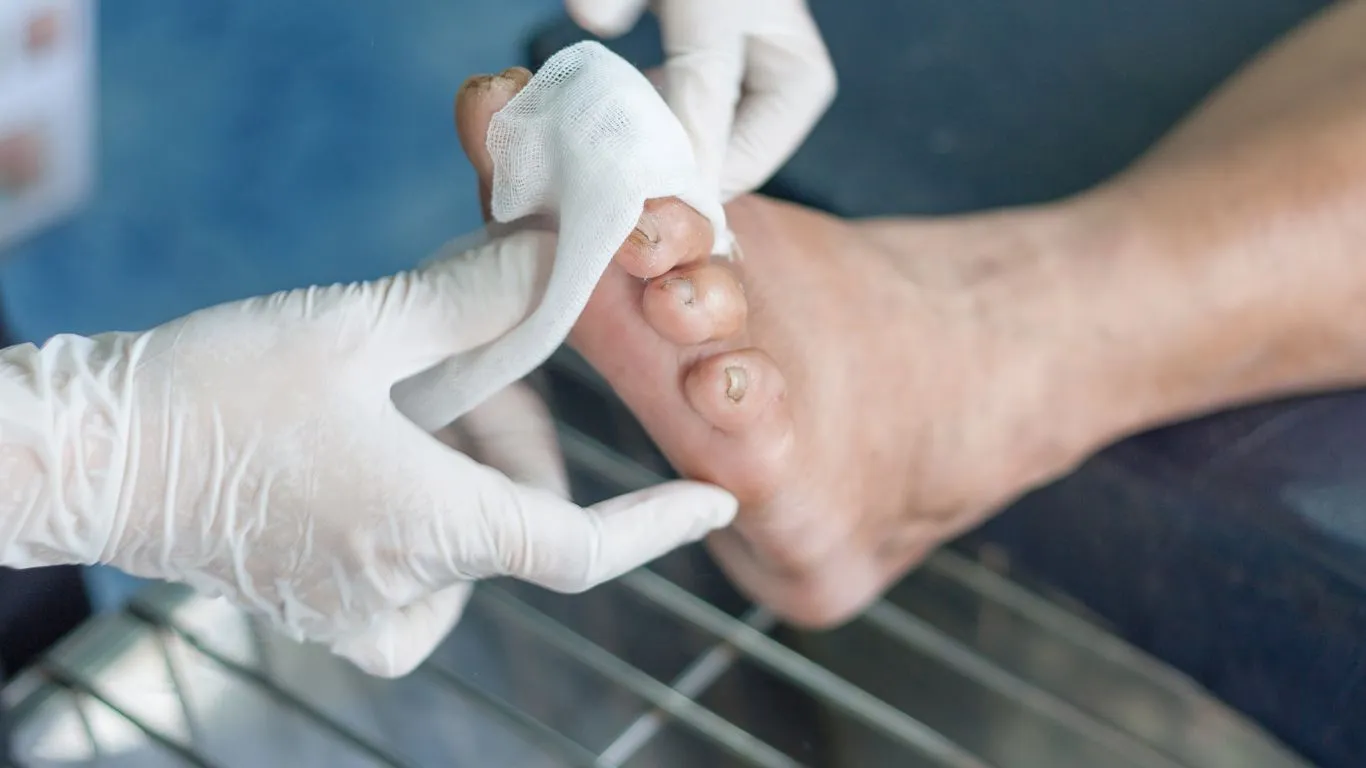
21 Aug Is there a treatment for diabetic foot without amputation?
The term diabetic foot refers to a range of health problems that affect the foot, with an increased risk among individuals with diabetes. Due to poor blood circulation to the foot and neuropathy that can affect diabetic patients in advanced stages of the disease, there is a risk of tissue infection. In some cases, partial foot amputation may be necessary to prevent the spread of infection or gangrene to other parts of the body, a concern that worries many patients.
Dr. Amir Malkawi, a vascular surgeon, addresses the question of whether there is a treatment for diabetic foot without amputation in detail in the following article.
Is there a treatment for diabetic foot without amputation?
Yes, especially in mild cases and early stages of diabetic foot where no serious health complications have occurred. Some of the notable treatment methods include:
Medications
Prescription of medications for diabetic foot depends on the specific health issue affecting the foot. As mentioned, there are several types of health problems associated with diabetic foot, such as fungal infections in the foot, injuries, and ingrown toenails under the skin. Medications prescribed for treating this condition may include:
- Antibiotics for bacterial infections.
- Medications to treat blood problems, such as anticoagulants and antiplatelet drugs.
- Prescription of topical medications and creams that aid in wound healing and ulceration of the foot, such as Becaplermin.
Read More: Treatment of Diabetic Foot Infection
Surgery
There are surgical options other than amputation, which include:
- Removal of ingrown toenails.
- Excision of ulcerated and swollen tissues.
- Drainage of pus from the wound site on the foot.
- Surgical fixation of the foot in individuals with Charcot foot.
- Arterial bypass surgery (redirecting blood flow) to improve blood flow to the affected foot.
- Stenting of leg arteries to improve blood circulation in the leg.
Home care tips for diabetic foot
There are a variety of home care tips and measures recommended by Dr. Amir Malkawi to help patients prevent this Condition or improve healing rates. These include:
- Wash your feet daily with warm water, avoiding very hot or cold water.
- Perform a daily foot inspection to ensure no new ulcers are forming or any symptoms indicating a foot health issue. If any are detected, consult a doctor immediately.
- Care for cracked heels and toenails to prevent their worsening or bleeding, reducing the risk of infection.
- Trim toenails regularly and carefully to prevent foot injury or fungal infection.
- Wear properly fitting footwear and avoid going barefoot to prevent foot swelling or injury.
- Avoid keeping feet in water for prolonged periods to prevent dryness afterward.
- Thoroughly dry your feet after exposure to water or sweating to reduce the risk of fungal infections.
- Avoid applying moisturizing cream between the toes to prevent fungal growth.
- Refrain from smoking, as it weakens blood circulation to the feet, increasing the risk of damage.
- Avoid exposing the legs to excessive heat or cold.
- Improve blood flow to the feet by elevating them when sitting, maintaining physical activity, and consulting a doctor about the need for compression stockings.
When does diabetic foot require amputation?
There are cases of diabetic foot that may indeed require amputation, especially when ulcers spread across the foot, leading to tissue necrosis or gangrene. In such cases, doctors are compelled to amputate the foot to prevent the spread of ulcers to other parts of the body.
References:
[1] – https://www.webmd.com/diabetes/foot-problems
[2] – https://my.clevelandclinic.org/health/diseases/21510-diabetic-feet
[3] – https://www.healthline.com/health/diabetic-foot-pain-and-ulcers-causes-treatments
[4] – https://www.medicalnewstoday.com/articles/317504
[5] – https://www.verywellhealth.com/diabetic-feet-5216003
[6]-https://www.niddk.nih.gov/health-information/diabetes/overview/preventing-problems/foot-problems
[8] – https://emedicine.medscape.com/article/460282-medication#4
